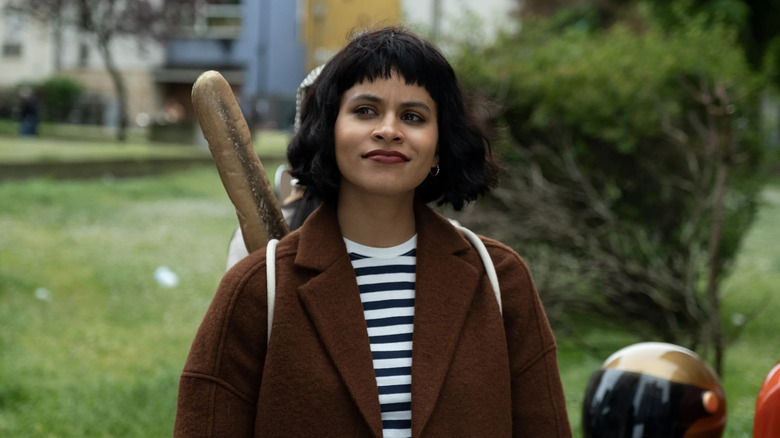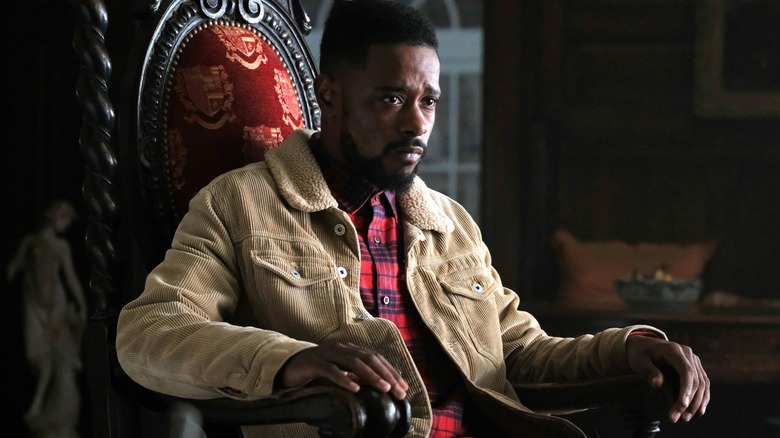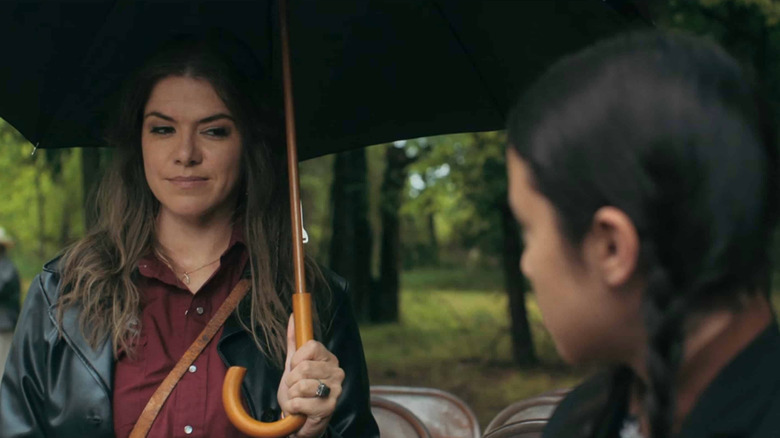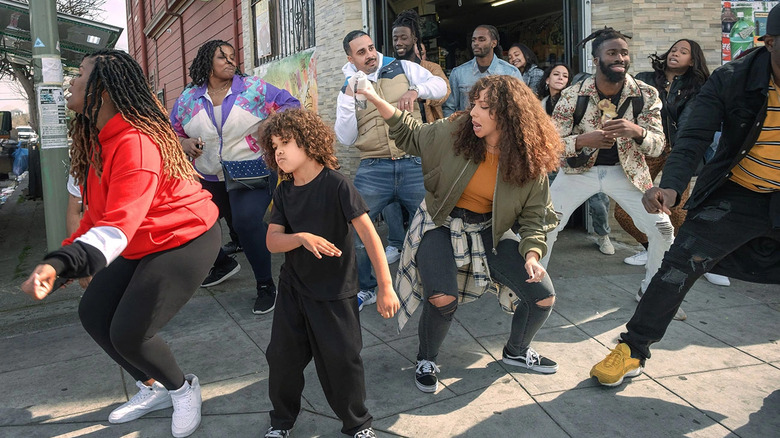How Atlanta And Reservation Dogs Showcase Peak TV’s Newest And Coolest Trend

One of the truly universal human experiences is feeling the surreal. It's a feeling almost beyond explanation, a tingling at the back of your neck and the knowledge that something isn't quite right. It's uncomfortable and impossible to forget. It feels like there is a world just beyond our own that occasionally spills over, bringing the mystical and bizarre into our otherwise mundane existence. The act of simply living can feel surreal, especially if you're someone who has been marginalized because of their identity.
There's something deeply human about feeling trapped in a world you don't quite understand, and it translates across cultures and experiences — so it really shouldn't be surprising that some of the best shows on television are using the surreal to tell earnest, authentic stories about living just outside the margins. The FX series "Atlanta," now in its fourth and final season, uses Afrosurrealism to depict life as a Black person in a racist world, while "Reservation Dogs" uses its own sweet surrealism to highlight the unique challenges facing Indigenous people living on reservations.
Both "Atlanta" and "Reservation Dogs" have supernatural characters, magical moments, and unexplainable mysteries, yet both feel firmly cemented in our own reality. The strangeness of the world helps audiences understand the bizarre and all-too-real experience of being marginalized by society.
The Slightly Scary Surreal As A Gateway

In 2016, when the world still only felt a tiny bit bizarre, "Atlanta" was a surprising breath of fresh air that challenged the television landscape with its unflinching look at police brutality, mental illness, rap culture, and more. Series creator Donald Glover told Time magazine that he wanted to create a series where people of all life experiences could understand the reality of Black folks: "The thesis was: How do we make people feel black?"
That first season of "Atlanta" was truly mind-blowing, and each subsequent season has upped the ante with its surrealist moments. The season 2 episode "Teddy Perkins" really showed audiences what the show could do, commenting on the nature of fame and familial abuse using a Michael Jackson-like character named Teddy Perkins. Glover played Perkins in unsettling makeup, never blinking. In season 4, Glover portrays a spoof of Atlanta filmmaker Tyler Perry that's one part Willy Wonka and one part Jigsaw from "Saw." The surreal world of "Atlanta" is frequently a frightening one, with all kinds of human monsters lurking around every corner.
I am hilariously, obscenely white, the kind of white that's as basic as mayonnaise on Wonder bread. I don't have the experiences of the characters in "Atlanta," but watching the series has helped me wrap my brain around some of it. The surreal nature of "Atlanta" helps create a unique sense of empathy, because we identify with these characters on a human level despite our potential differences. I may not know what it's like to be a Black man in Atlanta, but I do know what it's like to be afraid and misunderstood, and "Atlanta" helps connect those feelings into a better understanding of others.
Authenticity Without Hand-Holding

While the reality of "Atlanta" is ultimately one of horror, "Reservation Dogs" shows how a connection to the surreal can be a strength. The characters on the series are more in touch with the magic of the natural world, seeing things that their white neighbors simply cannot. The young Bear (D'Pharaoh Woon-A-Tai) is frequently visited by his ancestral spirit guide (Dallas Goldtooth), for example, and Elora (Devery Jacobs) manages to talk to the ghost of her grandmother immediately after her death. In addition to the ghosts of the past guiding the faces of the future, the characters also encounter the Deer Lady (Kaniehtiio Horn), a bogeyman-esque being from Indigenous myth who protects children and kills evil men. There are some scary moments on "Reservation Dogs," but unlike "Atlanta," the threats are mundane. The surreal is a source of strength, not scares, allowing the Indigenous characters to explore their roots in a way that ends up feeling universal to the human experience.
There are lots of in-jokes and references to various parts of Indigenous culture sprinkled throughout the series, told with great authenticity by the nearly all-Indigenous cast and crew. The result is a show rich with genuine Indigenous experiences that doesn't hold its audiences' hand and explain things too explicitly. Deer Lady is only partially explained, the eyes of owls are always blurred out because owls are considered harbingers of evil, and there are tons of little details that might require white audiences to do some wiki reading, but that's part of the brilliance. While "Atlanta" occasionally goes a little too far with its lessons for white folks, "Reservation Dogs" remains purely a story for its Indigenous audience, and anyone else who appreciates it is just a nice bonus.
The Future Of Television Is Surreal

While using a tiny bit of the surreal to tell a more human story is nothing new, it has certainly become more popular recently. "The Sopranos" used the slightly supernatural to bring an air of the mythic to its mobster story, and "Twin Peaks" set the standard for syndicated surrealism, but there's been a massive boom in surreal storytelling on the small screen in the past few years. On top of the greatness of "Atlanta" and "Reservation Dogs," shows like "Blindspotting," "Ramy," and "Mo" all use surrealism to make the marginalized experience feel more universal. To feel the surreal is to be human, even if we don't always have the words to describe the experience.
Hopefully, the success of these shows will lead to more surreal-but-authentic stories being produced, offering up a variety of experiences for audiences to engage with. The importance of representation in media is hard to overstate, but it's even better when that representation can also help audiences from all backgrounds learn to empathize and understand. After all, we're all just weird little brains trapped in meat suits, trying to survive in a world that doesn't make any sense. What's more human than that?
Read this next: The 15 Best Horror TV Shows Of All Time
The post How Atlanta and Reservation Dogs Showcase Peak TV's Newest and Coolest Trend appeared first on /Film.
